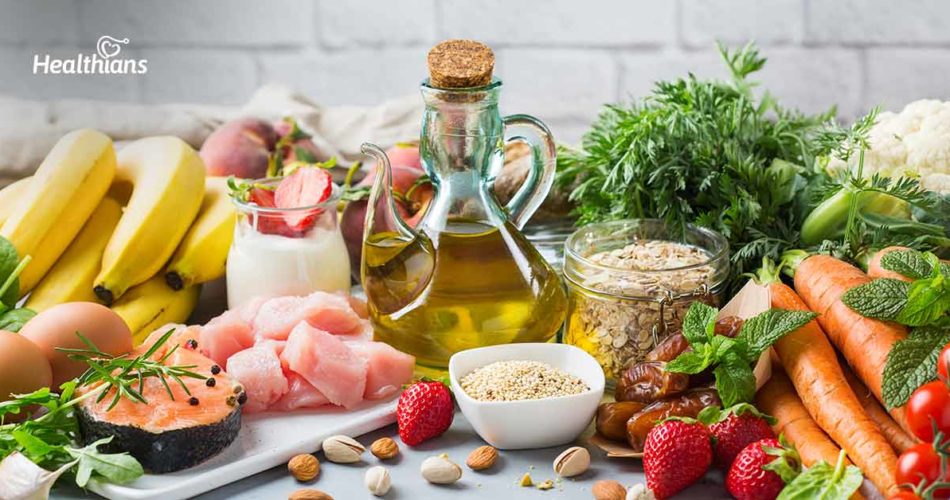Introduction
Low blood pressure, often known as hypotension, is a medical condition that occurs when blood pressure falls below normal values.
The normal range for blood pressure typically is 90/60 to 120/80 millimetres of mercury (mm Hg).
Maintaining normal blood pressure is critical for the health of your heart and arteries.
It’s critical to keep track of your numbers so you can make any adjustments before health concerns arise.
Abnormally low blood pressure (reading under 90/60 mm Hg) may cause inadequate blood flow to the heart, brain, and other vital organs and lead to adverse symptoms like:
- Blurred vision
- Dizziness
- Fainting
- Light-headedness
- Nausea and vomiting
- Cold, clammy, or pale skin
- Weakness
- Rapid, shallow breathing
- Trouble concentrating
Low blood pressure can be caused by a variety of factors, including ageing, medication side effects and conditions like diabetes and thyroid.
Diet not only plays a major role in heart health but also provides effective treatment of hypotension and maintains your blood pressure levels within the normal range.
Read on for some dietary modifications that can deal with the symptoms of erratic blood pressure, accelerate the process, and help raise blood pressure to normal in a short span of time.
It is, however, recommended to consult your doctor before self-treating or trying any natural remedy to raise your blood pressure to normal levels.
Eat salty foods
Salt is a key dietary component that helps raise the dipping blood pressure.
People who have low blood pressure should moderately increase their intake of sodium to resolve the issues of low blood pressure.
Canned soup, salted nuts, french fries, cottage cheese, smoked fish, pickled items, and olives are especially high in sodium.
But caution should be exercised in consuming excess salt as it may result in other clinical conditions.
Increase intake of water & fluids
Consumption of fluids in the form of water or juices aids in the prevention of dehydration, which is one of the leading causes of why a person’s blood pressure can decline.
Water deficiency due to vomiting, severe diarrhoea, fever, strenuous exercise, and excess sweating can reduce blood volume, which lowers blood pressure further.
It’s critical to keep your fluid levels up by consuming water and other beverages. Doctors recommend that persons with low blood pressure consume at least 8 glasses of water every day. They should also refrain from consuming alcohol.
Drink more caffeine
Coffee or any other caffeinated beverage can stimulate the cardiovascular system, causing an increase in heart rate and a temporary spike in blood pressure.
This is the reason consumption of foods and beverages containing caffeine like chocolate, tea, cocoa, and some sodas and energy drinks may prove beneficial in the short run.
If you’re suffering from hypotension, then having a cup of black coffee in the morning or with meals can give you good results.
Consume foods rich in vitamin B12
Foods rich in vitamin B12 are considered to be an effective antidote to help stabilize your blood pressure.
The deficiency of vitamin B12 in the body causes anaemia which leads to low blood pressure.
Eating foods rich in vitamin B12 such as meat, eggs, fish, and dairy products, such as milk and cheese can help relieve the problem of low blood pressure.
Fill up on Folate (vitamin B9)
Folate is an essential nutrient that is required by the body in a little amount to stay healthy.
Folate helps to make red blood cells and its deficiency is another reason that causes anaemia which leads to lowered blood pressure.
Include folate-rich foods in your diet like citrus fruits, broccoli, asparagus, lentils, beans, leafy greens, eggs, and liver.
Go nutty
Consuming almonds and raisins are the simplest way to manage low blood pressure levels in hypotensive patients.
They are loaded with nutrients and studies show that adding raisins and almonds to your diet can have a huge impact on treating hypotension naturally.
You can soak a few raisins and almonds in water overnight and eat them on an empty stomach the next morning, along with the water they were soaked in.
Other remedies for low blood pressure
To deal with the signs of low blood pressure, a person should:
- Cut back on carbohydrates
- Reduce the meal size
- Avoid skipping meals
- Limit alcohol consumption
- Check your blood sugar
- Get regular thyroid screening
Final thoughts
Even if your blood pressure is normal, you should have it checked at least once per year or two.
Please seek medical help when you experience the earliest symptoms of low blood pressure. In most cases, low blood pressure, if detected early, can be managed easily.




